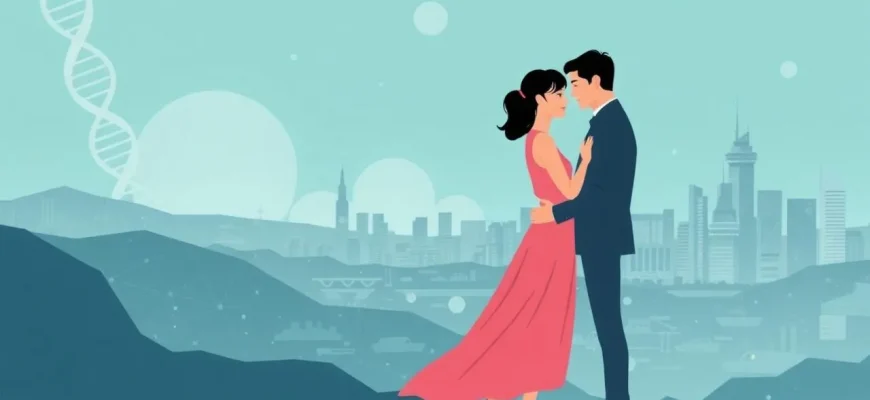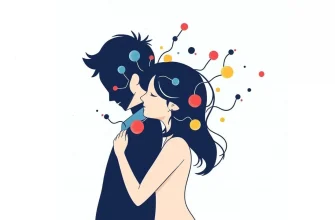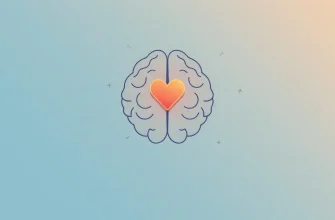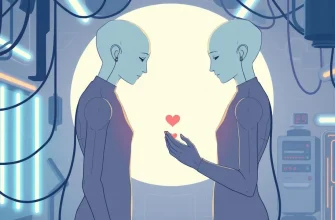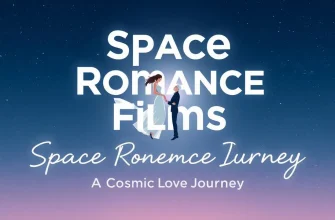In this curated list, we delve into the fascinating intersection of biotechnology and romance. These films not only explore the complexities of human emotions but also showcase the wonders and ethical dilemmas of biotech advancements. Whether you're a science enthusiast or a hopeless romantic, these melodramas offer a unique blend of heart-pounding love stories set against the backdrop of cutting-edge science.
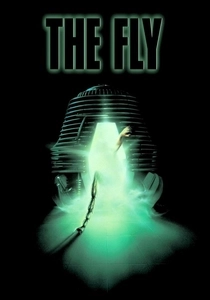
The Fly (1986)
Description: A scientist's experiment with teleportation goes horribly wrong when a fly gets into the machine, leading to his gradual transformation into a monstrous hybrid. This film combines horror with a tragic love story, exploring the boundaries of science.
Fact: The film was remade from the 1958 original. Also, the transformation scenes were groundbreaking for their time, using a combination of practical effects and animatronics.
 Watch Now
Watch Now 
Gattaca (1997)
Description: In a future where genetic engineering determines one's social class, Vincent Freeman, born naturally, assumes the identity of a genetically superior man to pursue his dream of space travel. This film explores the implications of genetic discrimination and the human spirit's resilience.
Fact: The film's title is based on the letters G, A, T, and C, which represent the four nucleobases of DNA. Also, the film's director, Andrew Niccol, wrote the script in just two weeks.
 Watch Now
Watch Now 
Code 46 (2003)
Description: In a future where genetic engineering is common, a man falls in love with a woman he's investigating for breaking genetic laws. This film explores themes of love, identity, and the ethical implications of biotechnology.
Fact: The film was shot in Shanghai, Dubai, and London to create a futuristic yet believable world. Also, the title refers to a fictional law that prohibits certain genetic combinations.
 Watch Now
Watch Now 
The Island (2005)
Description: In a dystopian future, Lincoln Six Echo discovers the truth about his existence: he's a clone created for organ harvesting. This film delves into the ethics of biotechnology and the quest for identity and freedom.
Fact: The film was inspired by the 1979 movie "Parts: The Clonus Horror." Also, it was one of the first films to use digital doubles extensively.
 Watch Now
Watch Now 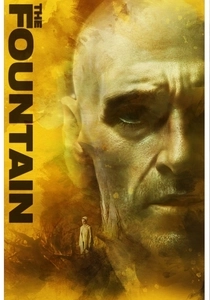
The Fountain (2006)
Description: Spanning over a thousand years, this film intertwines three stories about love, death, and the quest for immortality through biotechnology. It's a visually stunning exploration of how far one would go to save a loved one.
Fact: The film was initially conceived as a much larger project but was scaled down due to budget constraints. Also, the tree of life in the film was inspired by Mayan mythology.
 Watch Now
Watch Now 
Splice (2009)
Description: Clive and Elsa, two genetic engineers, create a new organism using human DNA, leading to unexpected consequences when their creation, Dren, develops human emotions and desires. This film explores the ethical boundaries of biotechnology and the emotional complexities of playing God.
Fact: The film was initially banned in several countries due to its controversial content. Also, the creature design for Dren was done by the same team that worked on the Alien franchise.
 Watch Now
Watch Now 
Never Let Me Go (2010)
Description: Set in a dystopian world where human clones are created to donate their organs, this film follows the lives of three students at Hailsham, a secluded boarding school. It's a poignant exploration of love, identity, and the ethics of biotechnology.
Fact: The film is based on Kazuo Ishiguro's novel of the same name. Also, the school in the film, Hailsham, was inspired by a real boarding school in England.
 Watch Now
Watch Now 
The Host (2013)
Description: Based on Stephenie Meyer's novel, this film follows a human resistance against an alien species that takes over human bodies. It's a story of love, identity, and the fight for freedom, with biotechnology playing a key role in the narrative.
Fact: The film was adapted from a novel by the same author who wrote the "Twilight" series. Also, the film's director, Andrew Niccol, also wrote the screenplay for "Gattaca."
 Watch Now
Watch Now 
The Age of Adaline (2015)
Description: This film tells the story of Adaline Bowman, who stops aging after a near-fatal accident involving a mysterious electrical storm. Her eternal youth becomes both a blessing and a curse as she navigates love and loss over the decades, with biotechnology playing a subtle yet crucial role in her life.
Fact: The film was inspired by the real-life story of a woman who claimed to be over 200 years old. Also, the film's director, Lee Toland Krieger, used real scientific theories to explain Adaline's condition.
 Watch Now
Watch Now 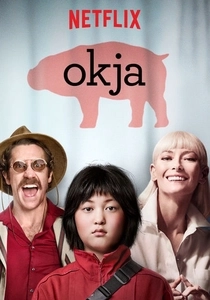
Okja (2017)
Description: A young girl named Mija embarks on a quest to save her genetically engineered super-pig, Okja, from a multinational corporation. This film blends themes of biotechnology, corporate greed, and the bond between humans and animals.
Fact: The film was shot in South Korea, Canada, and the United States. Also, the creature Okja was created using a combination of CGI and practical effects.
 30 Days Free
30 Days Free 
